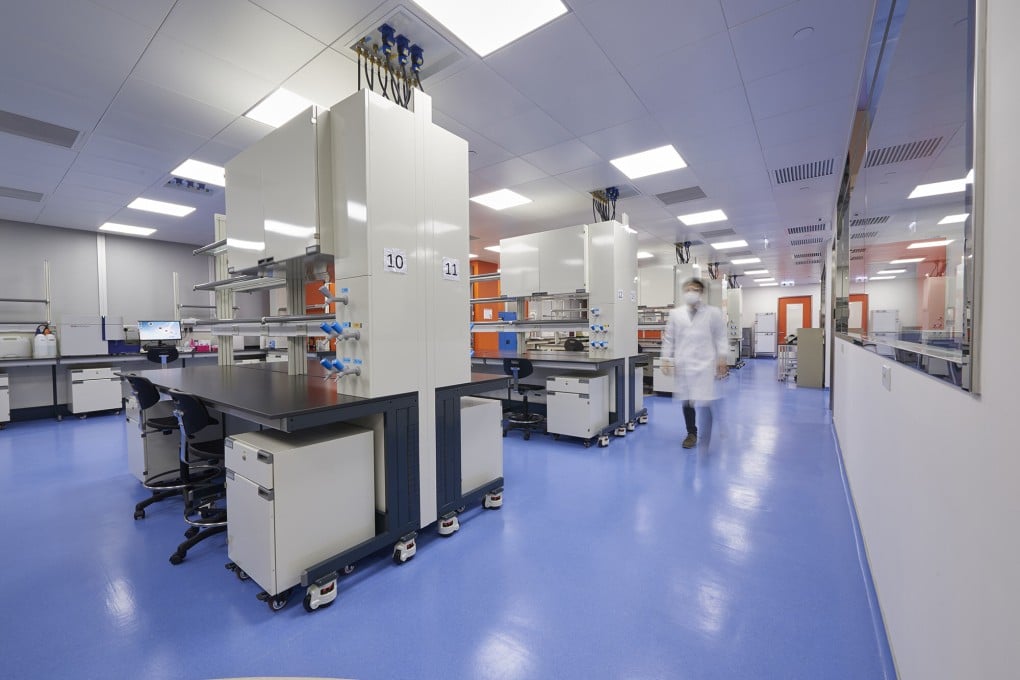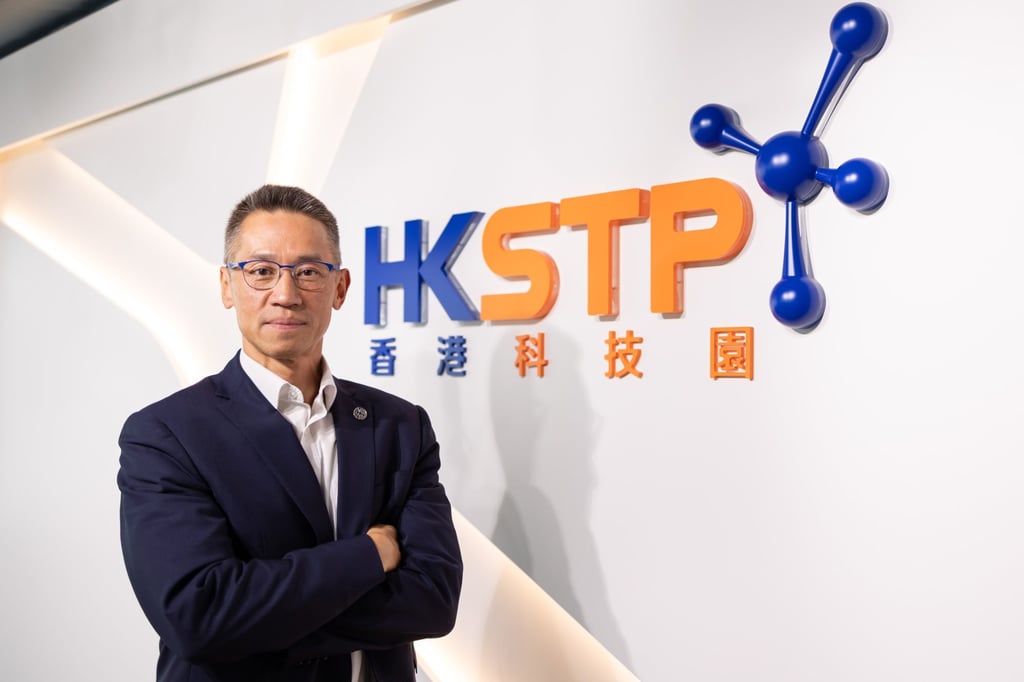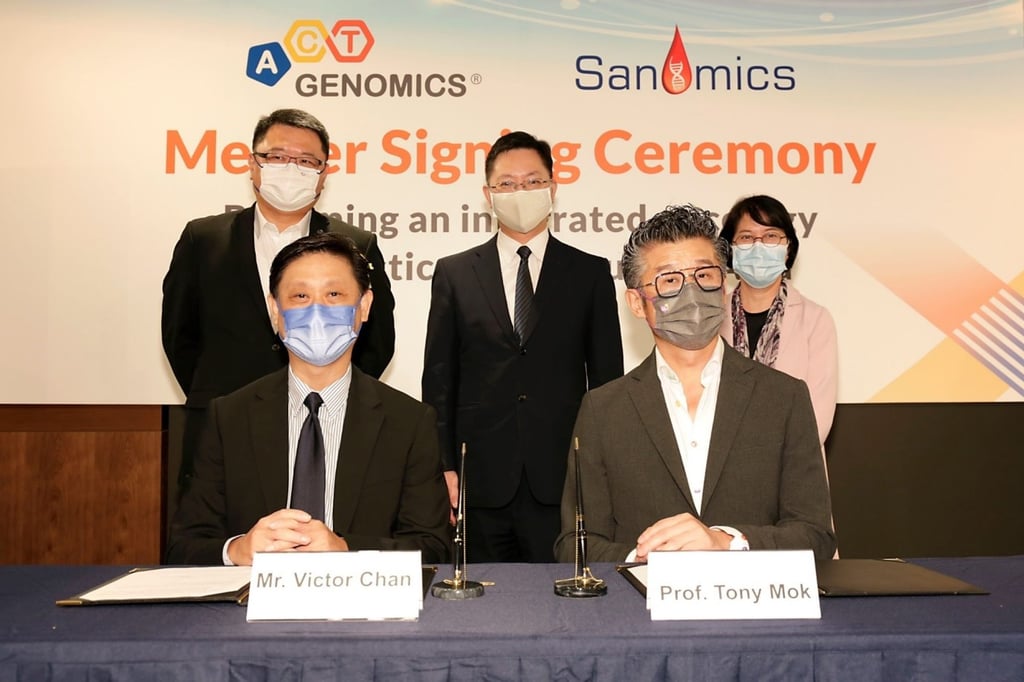Why Hong Kong’s biotech funding boom can have positive impact on start-ups and community
- City’s potential requires concerted effort and resources to ensure start-ups overcome R&D ‘valley of death’ to achieve success
- Ideal position within GBA and international reputation can offer life-saving initiatives unrivalled access to global markets

[Sponsored article]
Is there anywhere in the world today as good as Hong Kong as a location for a biotech start-up?
The city is now the fastest-growing and world’s second-largest biotech funding hub – securing US$12.6 billion in 2021, compared with the US$18 billion raised last year in top-ranked New York, Bloomberg has reported.
Hong Kong forms a vital part of the Greater Bay Area (GBA), which offers significant market opportunities and rich technology resources, while also acting as a key hub in reaching the rapidly growing Southeast Asia population and its significant healthcare needs.
In the three years since the Hong Kong stock exchange reformed its listing rules, 67 healthcare and biotech companies have floated their shares in the city, raising a total of HK$209 billion (US$26.79 billion), according to the Hong Kong advisory body, the Financial Services Development Council (FSDC).
“This is a remarkable achievement,” says Professor John Kao, head of the Institute of Translational Research (ITR) at Hong Kong Science and Technology Parks Corporation (HKSTP) – a government body set up to promote innovation and technology in the city – and chair professor of Translational Medical Engineering at the University of Hong Kong.
“Hong Kong never had a true biotech ecosystem until recently, but today it is growing with a huge opportunity to reposition Hong Kong beyond financial services and emerge as a genuine biotech innovation hub, and form a new economic pillar.”
However, money alone will not help Hong Kong achieve this ideal objective, says Professor Tony Mok, chairman of the Department of Clinical Oncology at the Chinese University of Hong Kong and chairman of the cancer diagnostics group, ACT Genomics.
“To me success must also be defined by helping patients,” he says, adding that the next big challenge for the city’s emerging biotech scene is to ensure that being the top fundraising hub for biotech must ultimately mean that the innovations and discoveries help the people and the businesses of Hong Kong.

Kao and Mok both believe that while most of the current biotech initial public offerings (IPOs) are by mainland Chinese ventures, more needs to be done to turn funding potential in Hong Kong into more home-grown and international research and development biotech start-ups.
“I am convinced that more can be done to deliver a balance of benefit to investors, patients and the city,” Mok says.
“The next challenge for Hong Kong is to become more than just a platform for biotech IPOs. We can be a true launch pad that brings even more mainland [Chinese] and global funding to small and growing start-ups in Hong Kong so they can scale and succeed.”
Last November, the FSDC released a research report that addressed the next stage of biotech development in Hong Kong.
The report listed recommendations to increase capacity and capability, including nurturing, attracting and retaining talent with distinguished research capabilities and business acumen; supporting financing needs through government programmes and public-private partnerships; and easing commercialisation of products and services in local, mainland (Chinese) and international markets throughout the business cycle.
Kao supports the FSDC’s hopes of seeing more start-ups in Hong Kong commercialise their research and sell their products and services to patients and healthcare providers in the GBA and international markets. HKSTP established the ITR to help biotech companies achieve precisely these goals.
“Everyone knows about the [pitfalls and challenges of the] biotech ‘valley of death’, and initiatives like ITR specifically aim to support start-ups in the critical challenge of taking promising research through testing, production, clinical trials and full commercialisation,” he says.
The plan is for ITR to leverage Hong Kong Science Park’s 1,000 start-ups, 11,000 research professionals and extended network of partners to provide critical infrastructure, expertise and customised programmes for researchers looking to advance their health and life sciences discoveries.
ITR aims to strengthen three specific capabilities: expedite the translation of biomedical technologies to benefit the public; instil researchers with an entrepreneurial mindset and skills for translational research; and establish Hong Kong as a pre-eminent hub for translational research and development.

Mok says insufficient early-stage funding and a lack of time and resources to support commercialising research are major factors hindering biotechs.
His company, ACT Genomics, an innovation-driven cancer solution provider covering the Asia-Pacific region, based at Hong Kong Science Park, is a rare success story. Last November it joined forces with the start-up Sanomics, a home-grown company focused on genetic cancer testing. HKSTP has provided both laboratory space and funding to help the venture develop.
Mok says the young visionary entrepreneur Stanley Sy, founder and CEO of Sanomics, has been the driving force behind the success of the start-up.
He says today’s start-up landscape is more supportive than in the past, and the recent budget announcement of additional government grants for early-stage biotechs will help young researchers find more opportunities to secure seed funding.

Kao says: “No one company has all the required knowledge, skills and immediate support to overcome the ‘valley of death’ challenges.”
He believes that Hong Kong today is uniquely positioned to support local and international biotechs and help fill the gaps in their journey to success.
“Healthcare is so global today that you need multi-jurisdiction understanding of the US, Europe and China markets, and insights into the different clinical trials and commercial markets,” he says. “Hong Kong has this precise knowledge and expertise.”
Hong Kong biotech companies such as Phase Scientific have already benefited from working within HKSTP’s ITR programme. The start-up has been selling millions of Covid testing kits, having progressed through various translational research challenges.
Another start-up, ImmunoDiagnostics, spent four years as part of Science Park programmes and partnerships developing testing kits for chronic and autoimmune diseases, which finally enabled it to go to market in Europe.
Along with ACT Genomics, these are just a few examples of the business potential that could be further exploited and developed into more success stories for Hong Kong. The challenge is clear, but can Hong Kong take the next step and realise this generational opportunity to make biotech a genuine big win for people, business and the economy?